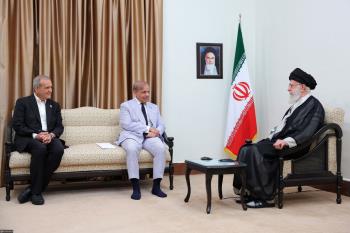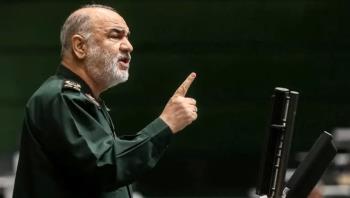Alwaght- Media and news channels speculate that the number of suicide attacks carried out in recent months within the borders of Saudi Arabia has rung alarm bell for Saudi authorities that have recently put ISIS on their list of terrorist groups. But to what extent is this grounded in reality? Given that Saudi Arabia strictly controls its borders, we may wonder what means ISIS will use to declare its existence.
Over the past three months, the explosion of a car bomb in a security check center, near the al-Hayer prison on the outskirts of the capital, Riyadh, and suicide bombings in two Shiite mosques in the eastern Saudi Arabia for which ISIS has claimed responsibility have made all observers and experts in Arab countries affairs to speculate on potential background of ISIS presence in Saudi Arabia. ISIS in its message titled "A letter to the Sunnis living on the land where two Holy Mosques are situated" addressed Saudi Arabia and stressed that it will soon declare its presence in Saudi Arabia. The message sent from the Saudi Arabian leaders of the ISIS terrorist group including Abu Fahad al- Jazrawi and Abu Jihad al-Jazrawi, invited people of Saudi Arabia to pledge their allegiance to Abu Bakr al-Baghdadi, the leader of the ISIS and join the group.
As Saudi Arabia has been the intellectual and practical origin of Wahhabism and associated movements and tendencies derived from it, it cannot be denied that this country has the potential for giving rise to Salafi movements with radical tendencies. Besides, due to material and ideological support of Saudi Arabia from the opposition forces in Syria and Iraq in recent years as a number of its militants were recruited from young Saudis, we may conclude that Saudi Arabia has developed the potential for presence of the ISIS terrorist group in some areas of Saudi Arabia.
The increasing number of Takfiri-terrorist prisoners in the prisons of Saudi Arabia is one of the dangers facing the Saudi authorities. For instance, the number of ISIS members kept in five major prisons of Saudi Arabia has significantly increased. There are thousands of members of Takfiri groups who are kept in al-Hayer prison and four other prisons in the country. Most of them are of new generation of so-called jihadist members. The number of those who belong to the older generation of Arab Afghans or even those who have fought in Iraq, is significantly low. 4209 prisoners are jailed in Saudi Arabia who are associated with terrorist activities, said to Reuters a Saudi colonel who called himself "Abu-Salman".
The prisoners, a great number of whom are young, sought to aggravate the crisis in Syria, and they were about to depart for Syria. In those days, due to the policy of "green passport", Saudi officials failed to get them involved in Syrian crisis. In fact, regardless of chaotic conditions which pave the way for attracting such groups, the issue has its roots in Wahhabi thoughts promoted in Saudi schools, and also the religious education and practices taught to those people, a fact that some Saudi princes are well aware of and believe that some revisions should be made in this regard.
However, this does not mean that actual background and the field realization of the ISIS in Saudi Arabia have been provided. There are a variety of factors which can prevent the proliferation of this wave of publicity and suicide bombings within the borders of Saudi Arabia. The most important one is a strong and stable government (compared to some weak governments in the West Asia) which exerts a strict control over any legal or illegal public movements, protests, groups and population. The Ministry of Interior and the Anti-Terrorism Committee play an important role in this regard which have managed to suppress many of these movements.
The second factor is the coordination between government policies and Council of Senior Scholars (Known as Majlis Hay'at Kibar al-‘Ulama) that prohibits any activities which tends to be a protest gathering. King Abdullah, the Former Saudi king had declared it was a crime to participate in wars in Syria and Iraq, or to join and support ISIS and al-Nusra terrorist groups. However, some Wahhabi Muftis issued jihad fatwa and prepared the ground for sending missionaries and Takfiri forces to Syria that in most cases were met with silence of Council of Senior Scholars.
Therefore, considering the above mentioned factors, we may conclude that Saudi Arabia has the potentials for ISIS activities within Saudi Arabia, but there are many buts and ifs concerning the feasibility of such a thing. Because, ISIS currently has no effectively organized activities in Saudi Arabia and in the current situation, such activities are not expected to produce any added value for the ISIS leaders. Therefore, it appears that ISIS would suffice to some sporadic suicide bombings, which is the only achievement that could only be imagined for ISIS within the borders of Saudi Arabia.


























